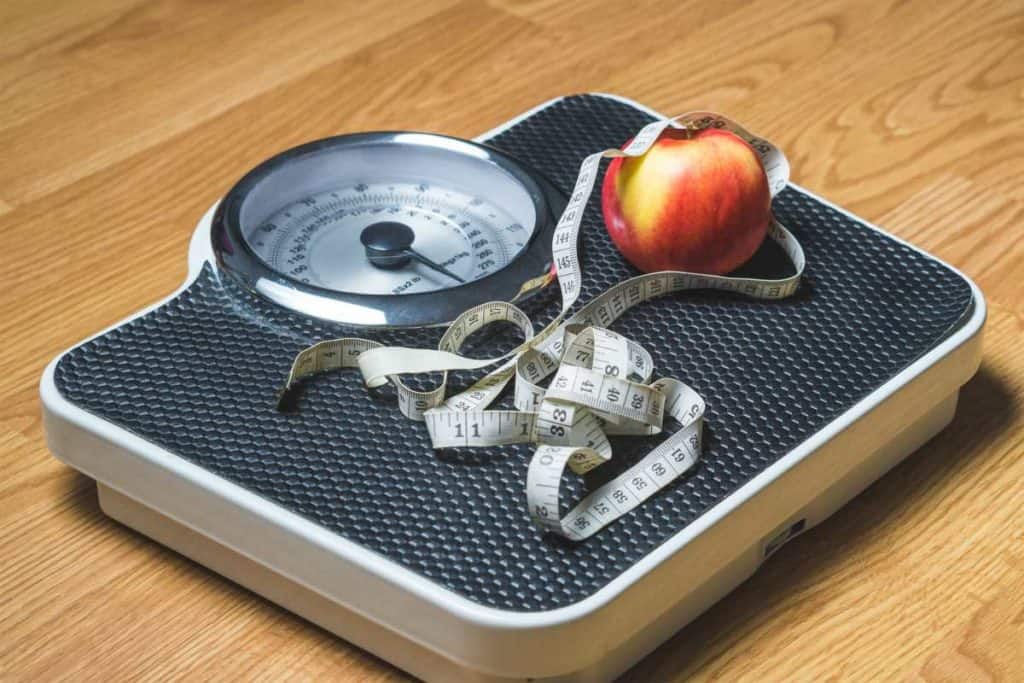Here at Back on Track Fitness, we’re all about the long game. Millions of people take up exercise around this time every year, and the unfortunate truth is that a huge percentage of them only last a couple of months. In fact by the sixth month nearly half of gym sign-ups have dropped out totally.
We plan to reverse that trend in our studios. That’s why we focus on one of the most important elements in your path to fitness—your mindset. Changing your beliefs when it comes to exercise and fitness is an integral step on your road to good health.
In this article, we’re going to look at a major stumbling block for those setting out on that road — weight fluctuation frustration.

All pain, no gain?!
Let’s face it, after investing time, sweat, resisting the treats and really making an effort to lose weight, it’s disheartening not to see that hard work reflected at weigh-in time.
We rely on the scales to give us gratification and motivation by rewarding us with a pleasantly low number at the end of a week of healthy eating and exercise. When our weight hasn’t dropped, it can be frustrating and disappointing. In fact, when many people don’t see a decrease in their weight it leads them to abandon their regime altogether.
Don’t fall into the trap.
Quitting your fitness plan because your weight hasn’t dropped that week or month is, to put it bluntly, nonsense.
The human body is an amazing machine, and one which can behave in ways that confuse even the experts. But luckily, there’s some solid science to explain why your scales aren’t rewarding you as you thought they might.
Let’s look at some of the top reasons that you might not be losing weight, despite all that hard work.
Water Retention
Water retention is when your body stores water in the circulatory system or in the tissues and cavities, and it can be the cause of you gaining or losing from two to four pounds in a day.
Water retention varies greatly from individual to individual. To complicate matters more, it also varies throughout the course of the day. This is a very common reason for people’s confusion when they weigh themselves too regularly.
Sodium levels can strongly affect your body’s likelihood of retaining water. Unfortunately, some low-calorie diet foods can be high in sodium, meaning that your supposedly healthy dinner can actually make you heavier in the short term.
Other reasons for water retention are certain types of medication and changes in your hormone levels, including those caused by menstruation, as we’ll look at later.
Stress
Believe it or not, your stress levels can directly affect your weight. Increased stress levels cause higher levels of cortisol, the body’s main stress hormone. Cortisol affects the metabolism, meaning that our body won’t process the fats as it should. It can also make you crave sugary and fatty foods as it decreases your insulin levels.

Stress has also been proven to increase fat storage, especially abdominal fat. Combine all that with the fact that stressed people are much more likely to eat comfort foods, and you have a surefire recipe for weight gain.
Luckily, there’s a straightforward solution—chilling out. It’s easier said than done, but de-stressing techniques such as meditation have been shown to reduce fat, especially belly fat.
Menstruation
As we’ve already seen, changes in your hormones can cause weight fluctuation. The reason for this is mainly down to water retention.
Up to five days before your period, the body can start to retain more water than usual meaning that the average woman will gain about two kilos in the lead up to menstruation. No need to panic though, as this weight will be shed again within a couple of days.
Muscle gain
As you work out, your body builds muscle. What happens when you get sore from exercise is that your exertions have caused tiny tears in the muscle fibers. As the muscle repairs itself, your body takes on more water to help the healing process. Once again, it’s that pesky water retention that adds the kilos!

Also, as your muscle builds, it adds weight. Muscle is denser than fat, so it takes up less space. This means that while your weight may stay stable, or even increase, as you exercise more, your physical shape and fitness will improve. This leads us conveniently on to another very important point in the weight loss vs fat loss dilemma—perception.
Look at the Whole Picture
Many people take the scales to be the ultimate sign that all the exercise has paid off, but this is a mistake. Stressing out about a kilo here and there will only be detrimental to your overall weight loss mission.
Much better indicators are physical shape, fitness and health. Rather than depending on the scales, try measuring your belly, arms, legs and torso once a month. Take photos of yourself and look for physical changes as your body becomes more toned.

It can take three months or longer to see obvious changes in your appearance, but once you see them, you’ll know it’s all been worth it. Suffice to say, when you step onto the scales and don’t see the result you were hoping for, don’t despair.
Focus on what you can control, like calorie intake, exercise regime and alcohol consumption. The long term results are what matters. Finally, remember to enjoy the process and have faith.
– Team BOTF
Interested in our next Transformation Challenge? Find out more here.
